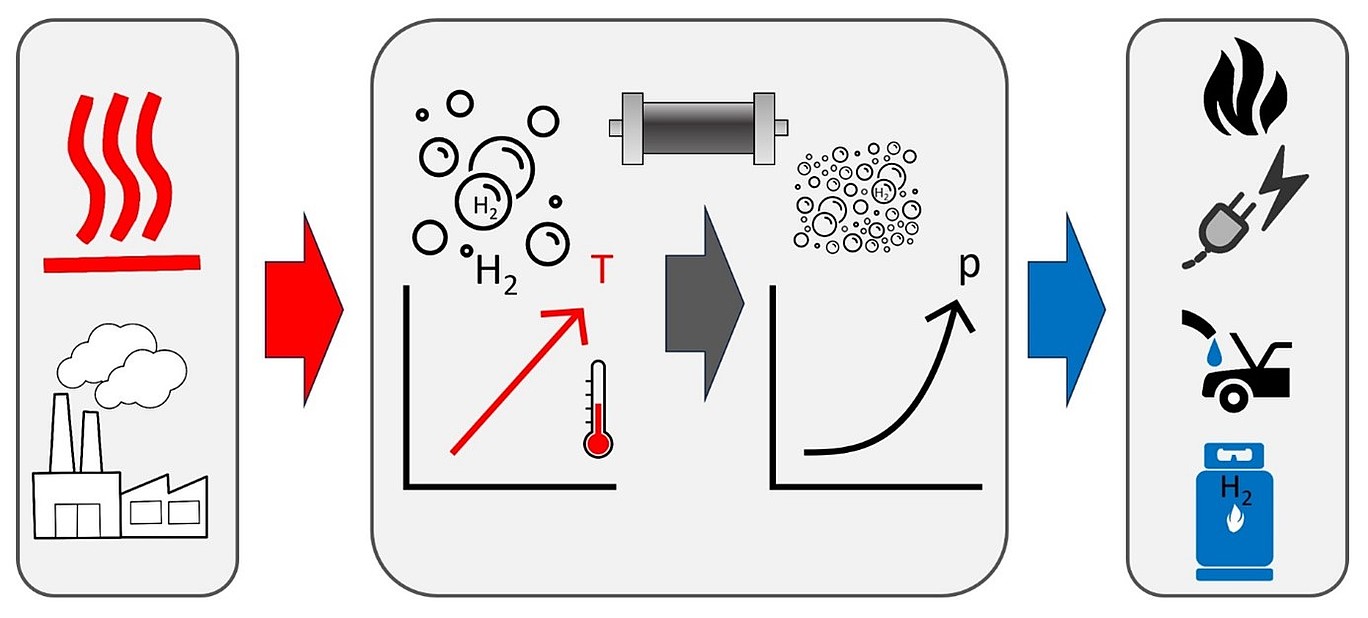
Motivation
Hydrogen is one of the most important energy sources of the future. Its production from "green electricity" opens up a wide range of possibilities for energy storage and the decarbonization of energy supply in the industrial, commercial and private sectors, including mobility. Hydrogen can be transported and stored very efficiently as a gas under high pressure, but this requires energy-intensive mechanical compression, which can consume a considerable amount of the hydrogen's energy content. Thermal compressors, on the other hand, ideally use waste heat instead of mechanical work for compression and therefore do not require any primary energy.
Objectives
The project aims to develop a thermochemical hydrogen compressor on a pilot plant scale, which is to be built and tested at the project partner Fraunhofer Hydrogen Lab in Görlitz. Work results on a laboratory scale from the hydrogen technology department of the Fraunhofer IFAM Dresden will be used as a basis. The process is based on the reaction of a metal with hydrogen to form a metal hydride. The initial reaction takes place with hydrogen consumption at low pressures and temperatures. By increasing the temperature with the help of waste heat, the reverse reaction then takes place in such a way that hydrogen is released again at higher pressures - i.e. compressed. A continuous cyclic process of this type forms the basis for thermal hydrogen compression.
Methods
To achieve a short cycle time and thus a high mass flow of hydrogen during compression, not only the mass transport but also the heat transport must be optimized. At the Zittau/Görlitz University of Applied Sciences, in addition to an analysis of usable waste heat sources in companies in the region, the main focus is on optimizing the heat transfer between suitable heat sources and sinks and the surface of the compressor vessel containing the reactants. Empirical as well as experimental and numerical methods will be used for this purpose.
Results
No project results are currently available.

